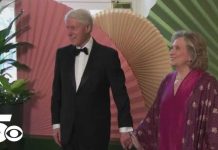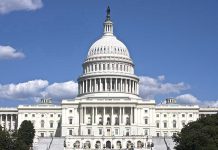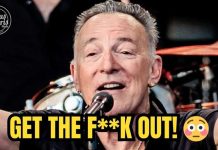
Venezuelan fighter jets buzzed a US Navy destroyer in international waters, triggering a fierce Pentagon warning and raising urgent questions about threats to American sovereignty and security.
Story Snapshot
- Two Venezuelan F-16s flew near the USS Jason Dunham during a US military operation in the Caribbean, labeled “highly provocative” by the Pentagon.
- The incident follows a lethal US strike on a cartel-linked vessel, reflecting President Trump’s new, tougher military posture in the region.
- The Pentagon accused the Maduro regime of attempting to interfere with counter-narcotics and anti-terror operations, warning of further action if obstructed.
- Experts warn of increased risk of military escalation and broader implications for regional security and US policy.
Venezuelan Jets Challenge US Naval Operations in International Waters
Two Venezuelan Air Force F-16 fighter jets executed a close flyover near the USS Jason Dunham, a US Navy guided-missile destroyer operating in international Caribbean waters. The Pentagon immediately condemned the maneuver, calling it “highly provocative” and stating that it was intended to disrupt ongoing American counter-narcotics and counter-terrorism missions. This direct military encounter came just days after a US strike on a suspected drug-smuggling vessel linked to the Tren de Aragua cartel, which resulted in the deaths of eleven cartel affiliates. Officials framed the incident as a test of American resolve and a direct threat to US freedom of navigation and operational security.
The Pentagon’s response was swift and unambiguous. On September 5, 2025, the Department of Defense publicly warned the Venezuelan regime, making clear that any further interference with American operations would not be tolerated. This firm stance highlights a significant escalation in US policy under the Trump administration, which has authorized the use of lethal force against cartel-linked targets at sea. Secretary of State Marco Rubio reinforced this message by calling Venezuelan President Nicolás Maduro an “indicted drug trafficker” and a “fugitive of American justice,” while reclassifying major Venezuelan gangs as foreign terrorist organizations. The US Navy has since increased its regional presence, deploying additional warships and surveillance assets to deter further provocations and protect American interests.
Historical Tensions and Shifting US Policy in the Caribbean
The backdrop for this confrontation is decades of strained US-Venezuela relations, marked by accusations of corruption, human rights abuses, and state-sponsored drug trafficking by the Maduro government. The US has long targeted the regime through sanctions and diplomatic isolation, but recent years have seen a shift toward more robust military action. Since 2020, the US Navy has expanded its deployments in the Caribbean to combat drug trafficking routes dominated by criminal organizations like the Tren de Aragua cartel, which Washington recently designated a terrorist group. Military incidents between the two countries have been rare, making this week’s flyover a notable escalation and a potential turning point in regional security dynamics.
Both nations bring distinct motivations and interests to the standoff. The United States seeks to disrupt drug trafficking, assert freedom of navigation, and pressure the Maduro regime. Venezuela, facing internal and external pressures, seeks to assert sovereignty and resist what it sees as American interference. The Tren de Aragua cartel, meanwhile, remains focused on maintaining its lucrative trafficking operations and evading US interdiction. This complex web of interests creates an unpredictable and potentially volatile environment in the Caribbean, with direct risk to American military personnel and national interests.
Escalation Risks and Strategic Implications for the US
Security analysts warn that the incident has increased the risk of military miscalculation or escalation in the region, especially as both sides harden their positions. The Trump administration’s policy shift—authorizing direct military action at sea—sets a new precedent for combating non-state actors but also raises legal and diplomatic challenges. Some experts question whether military force alone can address the root causes of drug trafficking, while others note the difficulty of distinguishing between state and non-state actors in such confrontations. The Pentagon’s explicit references to the Maduro regime as a “cartel” and “narco-terrorist” entity further complicate prospects for negotiation, potentially closing off diplomatic avenues while raising the stakes for future encounters.
Venezuela buzzed an American destroyer with US-made F-16s amid a Caribbean standoff https://t.co/jGvgNsB7kN
— Business Insider (@BusinessInsider) September 5, 2025
For American conservatives, the incident underscores longstanding frustrations with globalism, border insecurity, and perceived federal weakness in the face of foreign threats. The Trump administration’s decisive response, prioritizing US sovereignty and security, aligns with core values of individual liberty and national defense. However, the situation also highlights the need for vigilance against government overreach, ensuring that expanded military authority does not erode constitutional protections or lead to unintended consequences. As the US continues to confront threats from narco-terrorist regimes and criminal networks, the balance between aggressive action and constitutional restraint will remain a central challenge—one that demands close scrutiny and informed public debate.
Sources:
Axios: Venezuela military jets buzz US Navy ship in “highly provocative” move, Pentagon says
The Maritime Executive: US Issues Stern Warning After “Highly Provocative” Move by Venezuelan Jets
Fox News: Venezuelan military jets buzz US Navy ship in “highly provocative” move, Pentagon says
Stars and Stripes: Venezuela jets buzz US Navy vessel


















